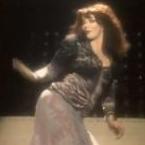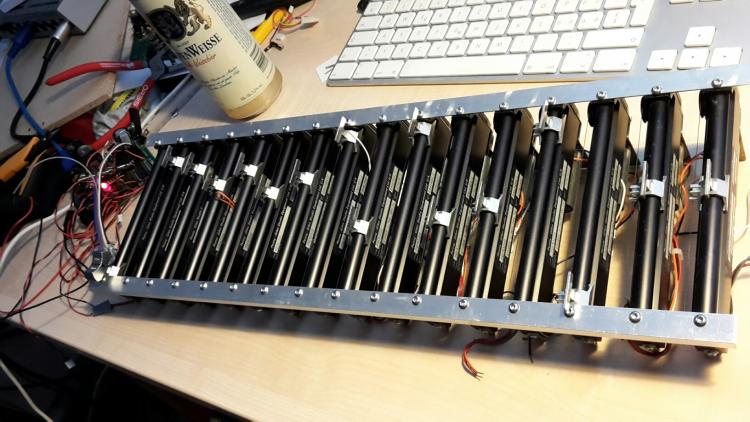-
Posts
118 -
Joined
-
Last visited
-
Days Won
3
u-link last won the day on June 22 2018
u-link had the most liked content!
About u-link
- Birthday 11/27/1984
Profile Information
-
Gender
Male
-
Location
Zürich, Switzerland
Recent Profile Visitors
9,074 profile views
u-link's Achievements

MIDIbox Addict (2/4)
4
Reputation
-
Did you find a solution to this? I had my Seq for some years, and I always find the exact situation you describe unnecessarily complicated. I guess most people will assign a function to a track that'll stay the same in every session. Being able to "init" every pattern to have the same assignments would make life a lot easier. I actually work around it by switching Option 11/33: "Paste and Clear button will modify: Only steps VS. Complete Track". I then switch it back and just clear the sequence content in a next step.
-
I have another little request / idea (which is born from my needs): at the moment, you can specify MIDI CCs to mute tracks. It would be amazing if you could chose to mute tracks via NOTES instead of CCs, too. Ideally, one would also be able to configure if "note on=track muted" or "note on= track unmuted". That would make mute automation a doddle in a DAW, you could simply have one MIDI track that sends out notes to mute and unmute tracks. The reason for asking this is that i got some cheapo Akai controllers (Midimix and MPD218), and I would like to use one of them for track muting. The MPD218, which is a Pad controller with nice backlit pads, can't send CCs from the pads, and the Midimix's buttons cant be set to latch (and their backlighting only works with MIDI feedback, argh)!
-
Sorry, I hadn't seen that. Would also be ace if the MIDI delay (one of my fave features) would allow for "spreading", kinda like a multitap delay, so some notes of a chord would be repeated at say 3/16 and others at 1/4 etc.
-
Has anybody ever proposed a "strum" feature on chords? So the start of the notes get broken up, like strumming on a guitar. It could be really simply implemented, maybe even just by assigning a parameter layer of a track with several pitch layers to be a roll layer.
-
I tried to connect a different motor fader (ALPS CP K.Fader), and this one works! I guess I'll just leave it at that and use those.
-
So, not too shabby, I think i figured my problem: these faders need higher voltage. I actually tried to connect some PSUs directly to a fader motor. 16V didn't do anything except some wiggling, 21.5V from an old Boss mixer PSU finally made it move! The faders were made to customer's spec it seems, maybe they are supposed to run on 24V? The L293D can run up to 36V, the LM317 can also output 38V, I think, so would it be ok to connect a higher rated PSU to the MF_NG board? I would have to change the electrolytical caps, they are rated at 25V . The 7805 is already getting pretty dam hot, though, even with the 12V AC PSU I have connected now and a small heat sink. Maybe I could replace that with a switch mode regulator?
-
Thanks a lot for clearing that up - makes a lot more sense than my assumption. I tried fiddling around a bit more, but the faders still won't move. The faders are actually looking a lot more like the earlier 3000 series P&G faders, they are open and supposed to move the wiper with a string, not with a belt. But even the data sheet of these guys has different wire colors listed than on mine, but i think i sorted that out. The touch sensor also works, but only when I touch the ground line with my other hand - there is a second ground wire for connecting the fader housing to ground (i think, which is what i did).
-
Hi! I am trying to get some faders moving, but up to now, they refuse to move. That's alright, "refusing to move" is a phenomenon that most people that produce dance music and perform it live or DJ might have experienced, it just takes some time, but you can normally lure the people into your groove. Well, IF they are people. Right now, they are NOT. They are P&G motor faders called PGFM3200. But an older version than the one i was able to find data sheets from. The wires have different color codes, but with some trial and (predominantly) error, I have manged to get the analog input working alright, with no jitter at all. At the moment, I have only the first fader connected, and it is set to to output PB, I get values from -7936 to +7904. TBH, i don't even know what the complete PB range is, but as it's almost perfectly symmetrical, I just assume it's alright. However, the MOTOR doesn't do anything except some lame PWM growling, but no moving. It's my first time trying to get a motor fader to run, so please excuse my ignorance. The data sheet i found for the newer version of this fader says "stall current" is 0.54A. I guess "stall" means "not moving", and that seems like a lot of current for doing nothing - maybe the board (and the PSU) are not able to supply enough juice? I am aware that there is not much action in this thread, but help would be appreciated! I even have spare faders to bestow upon ye that are helpful (because i was given a lot of them for free!). Please see the attached photo for my (pretty simplistic) prototype layout.
-
I Thanks a lot for the info. So one could also go for switch caps that only have a transparent indicator line, similar to the ones on the TR-909 or the Cirklon. I personally would prefer that, as it gives a more focused indication. A friend of mine has the TR-8, and when we used it live in a club, it was annoyingly too bright (IIRC there's a dimmed setting, though, but it was still very bright). I also wonder if both the Matias switches and the round buttons won't outshine the displays? I was asking about the labels because in the old thread, the idea for the transparent switch cap only came up in conjunction with the question on how to label the switches. Doing away with the Menu Shortcut names seems like a good idea, as these are shown on the screens as soon as you hit menu, and it will promote customization (on my Wilba panel, 16 is labelled "SYS EX" - not something I ever used, I put the remix function there). I for one would still like to see numbering from 1 to 16 in between the Matias rows or between the top row and the encoders. Anything that helps identifying a step at a glance is good IMHO.
-
Is my understanding correct that the final production case will be printed with the functions of the smaller round buttons, and that there's gonna be a set of labels to put into the transparent Matias knob caps? How is the "light spill" with the fully transparent knob caps? Would one ideally paint the caps' lower section from the inside (like an R/C car lexan body) so only the top ( where the printed inlay is transparent) lets trough light?
-
I will gladly help out on that, too! I saw pictures of Midibox meet-ups back in the PIC-days - are there anymore of those happening? If so, I would be delighted to join.
-
Hey Peter, I measured 43,8cm x 15,7cm x 8,8cm (WxDxH) on mine, including the rubber feet. Encoder knobs top and the (rounded) edge at the back are just about the same height. You are actually using very tall encoder knobs on the pics. The tapered, low profile ones on the other famous sequentixcer do handle very well i gotta add! Thanks for info and have a nice weekend, too! BTW, do you not drink beer? Otherwise you should add a "buy Hawkeye a beer" signature, too. I'll also buy you an Apfelschorle if need be.
-
Could you post the dimensions of the unit? It looks like it might stand a bit taller than the Wilba Seq in the Heidenreich case, and in my setup (read: table with rack on top), there's not much spare room above it. When not doing music, I like to slide it underneath the rack. Thanks a lot!
-
Well that's alright with me, too. Might be cool for spot erasing / overdub recording etc.
-
+1 for keypad - or even better, full ASCI keyboard support! Nice one - I often wished to have just a single trigger out 'on board' to trigger a ducking gate for some sidechaining on a mixing desk bus insert!





